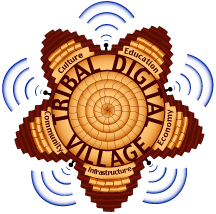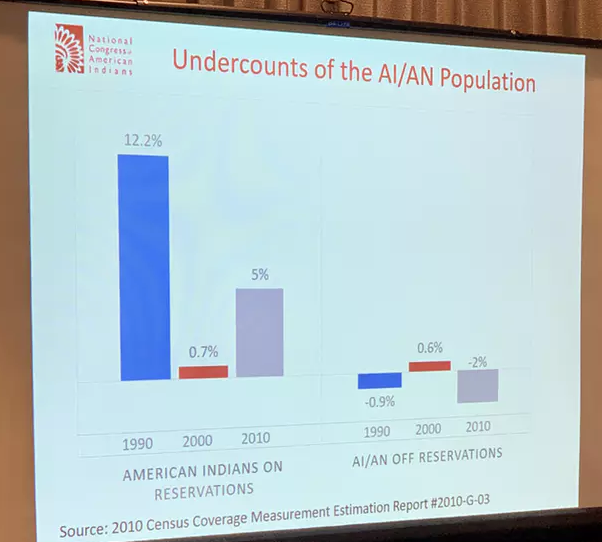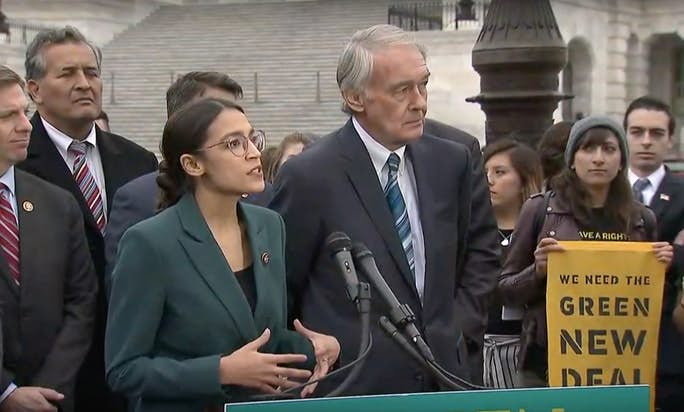Connecting Broadband with Economic Opportunities: Challenges and Success Stories
Connecting Broadband with Economic Opportunities: Challenges and Success Stories
#IGFUSAConnectivity
Lack of connectivity and overpriced or substandard service prevent many US communities from accessing economic opportunities, education opportunities, as well as other basic tools of everyday life and interaction. As economic activity and basic tools of civic participation move online, these same underconnected or unrepresented communities face the most serious challenges in accessing opportunities and government services. Similarly, cultural, education and employment opportunities are tied inexorably to Internet access, and poor or out-of-reach connectivity deepens and amplifies existing inequities. While efforts to provide or improve connectivity are underway, it is not always easy for advocates, officials, and funders to draw a straight line between these projects and economic benefits for communities.
What solutions exist to try and bridge this gap? As society becomes more and more reliant on ‘always-on’ Internet access, how can we make good on the promise of the Internet to make the world a more equitable place by ensuring equal access to the Internet?
The goal of this panel is to develop tools, stories, and policy strategies to encourage and support investment and the development of new forms of partnership so we can take multiple and customized approaches to ensure that increased connectivity will be sustainable, and will lead to sustainable economic opportunity for all.
Moderator

Nicol Turner-Lee
Brookings Institution
Prior to joining MMTC, Dr. Turner-Lee was vice president and the first director of the Media and Technology Institute at the Joint Center for Political and Economic Studies, the nation’s leading think tank on issues related to African Americans and other people of color. In this role, she led the technology research agenda that was focused on advancing digital equity and inclusion for historically disadvantaged populations. Her most notable work was her development of the first national minority broadband adoption study in 2009 that was later cited in the congressionally mandated Federal Communications Commission’s National Broadband Plan. Her other publications there included, “Minorities, Mobile Broadband, and the Management of Chronic Diseases” (April 2012), co-authored with Dr. Brian Smedley and Joseph Miller; “Place Matters: The Debate over Broadband Availability” (2011); and, “Increasing Civic Engagement in the Digital Age” (2010) which was published by the Federal Communications Commission Law Journal.In addition to these and other publications, Dr. Turner-Lee has been cited in the New York Times, Washington Post, San Francisco Chronicle, Communications Daily, Multichannel News, Washington Informer, among other print and online publications. She is also a widely sought expert and speaker on issues related to communications policies in media and at conferences, and she has testified before Congress. Dr. Turner-Lee was a two-time Digital Research Program Scholar as part of Time Warner Cable’s Cable Research Program in Communications and recipient of countless recognitions, including the presentation of the Lifetime Achievement Award from the Rainbow PUSH Coalition (2015) and one of the Most Inspiring Women in Media from the Alliance of Women in Media (2014).
At the Center for Technology Innovation, Dr. Turner-Lee researches public policy designed to enable equitable access to technology across the U.S. and to harness its power to create change in communities across the world. Dr. Turner-Lee’s research also explores global and domestic broadband deployment, regulatory, and internet governance issues. She is also an expert on the intersection of race, wealth, and technology within the context of civic engagement, criminal justice, and economic development.
Dr. Turner-Lee graduated from Colgate University magna cum laude and has a M.A. and Ph.D. in Sociology from Northwestern University. She also holds a Certificate in Nonprofit Management from the University of Illinois-Chicago. Dr. Turner-Lee is a Visiting Scholar at the Center for Gender Equity in Science and Technology at Arizona State University. She also serves on the U.S. State Department’s Advisory Committee on International Communications and Information Policy (ACICIP). In her free time, Dr. Turner-Lee is active on the boards of various nonprofit organizations, including the Telecommunications Policy Research Conference (TPRC), the Washington Literacy Center, and STEM4US, which is committed to advancing diversity in the technology fields.
Panelists

Clayton Banks
Silicon Harlem
View BioClayton Banks is the Co-Founder and CEO of Silicon Harlem. The mission of Silicon Harlem is to transform Harlem and other urban markets into Innovation and Technology Hubs. Under his leadership, Silicon Harlem has been able to partner with the Department of Education for New York City to establish an after school STEM based startup accelerator, collaborate with the NYC Mayor’s office to assess wireless broadband in upper Manhattan and coordinate a virtual startup incubator for tech based entrepreneurs. Banks has established and produces the only comprehensive technology conference in Harlem, the Silicon Harlem tech conference is focused on next generation internet and its impact on urban markets economic development.

Matthew Rantanen
Southern California Tribal Chairmen’s Association
View BioMatthew R. Rantanen is the Director of Technology for the Southern California Tribal Chairmen’s Association (SCTCA) and Director of the Tribal Digital Village (TDVNet) Network/Initiative that was started in 2001 designing and deploying wireless networking to support the tribal communities of Southern California. Matthew, of Finnish, Cree Indian, and Norwegian decent, has been described as a “cyber warrior for community networking.” He is an advocate for net-neutrality, broadband for everyone, and opening more spectrum for public consumption, always looking out for the unserved and underserved.Matthew has served as Chairman of the Board for (2) terms and is currently the treasurer on the board of directors for Native Public Media (NPM). He was named to the FCC Native Nations Broadband Task Force by FCC Chairman Julius Genachowski, and has completed his second assignment, having been renamed to the task force by FCC Chairman, Tom Wheeler.He also serves on the inaugural board of the American Indian Policy Institute (AIPI) at Arizona State University. Matthew is on the Tribal Advisory Group which advises the California First Responders Network (CalFRN), California Office of Emergency Services (CalOES) and the Broadband Council to the Governor.Matthew works with the National Congress of American Indians (NCAI) and is currently the Co-Chair of the Technology and Telecom Subcommittee and Co-Chair of their Technology Task Force.Matthew continues to develop policy and work with these partners in collaboration to get broadband deployed to the unserved and underserved communities.

Katie Myers
SEAD Task Force
View BioKatie Myers grew up on the Eastern seaboard and moved to Knoxville, Tennessee in 2014, where she completed her bachelor’s degree at the University of Tennessee, Knoxville. There, she undertook participatory research in rural development in Appalachia. Katie’s work is led by her values of redistributive economics and resource sovereignty for marginalized people, and she has lent support to immigrants’ rights, anti-racist, environmental justice, and youth organizing projects both in Appalachia and elsewhere. She has also spent time in southern Mexico and the borderlands of Arizona, working in solidarity with the indigenous peoples of Mexico and Central America. Katie is currently working with residents of Cocke County, Tennessee to envision possibilities for cooperatively-owned ISPs in the region.

Diana Oo
Comcast NBCUniversal
View BioDiana Oo serves as Senior Director of Global Public Policy at Comcast NBCUniversal’s Washington, D.C. office. She oversees the company’s policies related to intellectual property, Internet governance, and sustainability issues.
Previously, she served as Director of Government Affairs at Cablevision. In that role, she advised key executives on congressional issues affecting Cablevision and spearheaded the company’s federal legislative policy and strategy, including on retransmission consent, privacy, cybersecurity, and intellectual property.
Before joining Cablevision, Diana served as counsel on the U.S. House of Representatives Committee on the Judiciary, where she advised the Chairman on a variety of copyright and communications issues, including net neutrality, digital music royalties, Internet gaming, the constitutionality of the Copyright Royalty Board, and reauthorization of the statutory satellite and cable carriage licenses.
Prior to joining the House Judiciary Committee, she worked as an associate at McGraw-Hill, focusing on copyright issues affecting the publishing industry, including orphan works legislation.
Diana began her career as a legislative aide to former Congressman Harold Ford Jr. (D-TN). She has also had the opportunity to serve as an intern at the Federal Communications Commission, the Recording Industry Association of America, and the Electronic Privacy Information Center.
Diana received her J.D. degree from the Catholic University of America and a B.S. in Psychology and Economics from the University of Tennessee.





Comments are closed here.